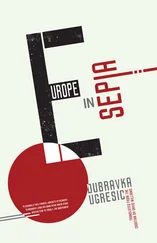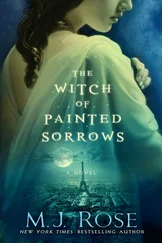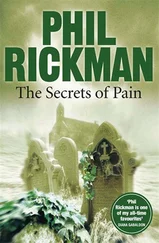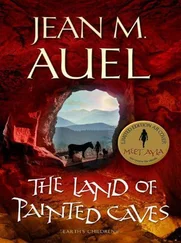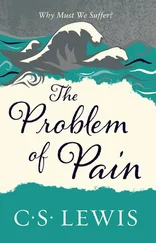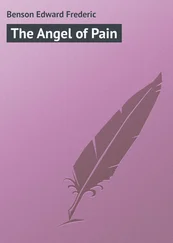Mama would also buy ten packets of bread sticks and ten packets of pretzel sticks, but that was for company. Whenever we had company, Mama put the bread sticks in one cup and the pretzel sticks in another. The guests would sit on the couch. “Have some pretzel sticks,” she would say as she put the cups on the long, low coffee table, and the guests would take a pretzel stick or a bread stick and start munching on it. They looked like rabbits. Then Mama would take out her “ikebanas,” as Papa called them, two or three flat plates she had filled with rings of sliced pickles and sausage and peppers and cheese. Each slice had a toothpick coming out of it and in the middle she put a mound of ajvar . Guests always complimented Mama on her ikebanas , but they got on Papa’s nerves.
“Someday somebody’s going to choke on one of your toothpicks,” he would say angrily.
“You have no sense for what’s in,” she would answer.
I think that “in” was the most popular word of the day. Mama always knew what the “in” furniture was, the in lamp, the in hairdo, the in curtains, the in shoes, in eyeglass frames. It was the time when everything just had to be plastic. Plastic was the innest of in.
After dessert Papa would turn the television on. Our television had a plastic filter like a rainbow across the screen to make it look like color when it was really only black and white. We would die of laughter whenever Citizen Mollycoddle was on.
Now that I write all this down, I’m not so sure it’s the way it was. It’s all so hazy and dreamlike; it’s like I was telling somebody else’s story rather than mine.
BOBAN: MY FAVORITE COMIC STRIP
There weren’t many books in our house, but there was one that caught my fancy even when I was little. It was more portfolio than book. It had black leather covers and gilt-edged pages. In the middle of the front cover there was a round metal insignia that looked like a large metal coin. It had the profile of a bearded man engraved on it. When I was a kid, I would scratch at it and try to get it off, but I never did. Inside there were some sheets of typewriter-size paper, yellow with age: documents, paintings, maps, and photographs. There were many more illustrations than text. It looked like a badly organized comic strip.
“It’s a book about revolution,” Granddad would tell me.
“Levolution,” I repeated after him.
“It’s the book of the Great October Revolution.”
After learning to read, I would mouth the title over and over: The Life and Work of V. I. Lenin, 1870–1924 . What I liked best about the book were the portraits of the revolutionaries. The portraits always showed them with dark, brooding looks, and they were often sitting round a table arguing. Even though the book was about Lenin, Stalin was always in the foreground. Lenin usually stood behind Stalin, who was seated at the table. I liked the fact that everything in the pictures was in semidarkness. The light always came from a lamp or a window. But most of all I liked the books. There were always bookcases filled with books in the background. One painting showed Stalin visiting Lenin in his room. Lenin is standing to greet him, and there is an open book in the armchair. Another painting showed Lenin and Stalin having a chat with “delegates from the Central Asian Republics.” I remember it as if it was yesterday: “delegates from the Central Asian Republics.” The delegates were all wearing those Asian skullcaps, and in the background there was a big bookcase. You could see how impressed the delegates were by the number of books in the bookcase. I also remember a picture entitled V. I. Lenin and His Wife N. K. Krupskaya in Siberian Exile. It showed Lenin standing next to a chest of drawers engrossed in a book while N. K. Krupskaya stands next to a bookshelf.
Later I read the inscription. It was written in a fine, round hand. It said: “My very best wishes to my very best friend, Nebojša Krsti  . Major Veljko Vukašinovi
. Major Veljko Vukašinovi  .”
.”
My grandfather’s name was Nebojša Krsti  .
.
My grandfather was a partisan. He was what they called a prvoborac , which means someone who joined the resistance early. My old man called him an udbaš , which means a member of the Secret Police, though he didn’t start calling him that until the Commies started losing ground. My old man was a shit. Then again, most people are shits. They blow hot and cold. By the way, what makes you think the Commies are so different from Sai Baba? The Commies tried to perform miracles, too. Until the lid came off, that is. And I don’t believe they read all those books.
If anybody asked me to paint a representative portrait of my family, you know what I’d put next to the old man? A Zastava 101, because he paid a lot more attention to that old jalopy than to me. And next to the old lady I’d put the plastic bag she used to carry groceries back from the market. And next to me a soccer ball. And next to Grandpa the old revolver he kept in his bedside table and never let me near. The old man and the old lady were a couple of hicks. The Commies were cool!
ANTE: INVITATION TO A BALL
I remember the tea dances we had in school when we were twelve or thirteen. They disappeared after discos came in. They never served tea at tea dances, or anything else for that matter, and I’m still not clear about why they called them tea dances. The room had chairs along two walls. Boys sat on one side, girls on the other. Every tea dance had its “matron.” The matron’s job was to make sure we didn’t drink too much of the tea they didn’t serve. Somebody else took care of the music. Those were the days when they still had record players and tape recorders. They’re gone now, too. Each of us would go up to a girl and stand in front of her. Like a beau or something. Without a word. That meant we were asking her to dance. Every once in a while the matron would call out, “Ladies’ choice!” and the girls would stand and come over to us. That was how you could tell which girl liked you.
Those being our “hormonal years,” we all looked forward to the close dances or what we called “squeezers.” They were slow—“Only You”—slow — and you’d press the girl real close, so close that both of you could hardly breathe. You were almost numb with excitement, but you made believe it was nothing. Just the thought of it still takes my breath away. It was like I was diving and I’d come up with my cheek against hers. We’d be so close my eyes would lose their focus and cross. I could feel her transparent, milky white skin; I could make out the blue veins in her eyelids. Her breath smelled of green peppermint drops. Just the thought of it makes me dizzy still. The girl’s name was Sanja Petrini  .
.
MELIHA: BOSNIAN HOTPOT
Memory aids survival.
Marcel/a Proust/i 
Ingredients: ½ kilo boneless pork and ½ kilo boneless beef, cubed; ½ kilo small potatoes, unsliced; 2 onions, sliced in half; 10 cloves of garlic, unsliced; 40 decagrams of fresh tomatoes; 4 green or red peppers; 30 decagrams of kale; 20 decagrams of cabbage; 2 carrots; 2 bunches of parsley; 1 bunch of celery; 1 kohlrabi; 10 string beans; 2 heaping teaspoons of sweet paprika; 15 to 20 peppercorns; several bay leaves; approximately 30 decagrams of water, broth, or white wine. Chop the vegetables coarsely. Place the meat, onions, and vegetables in a pot, preferably earthenware. Add the liquid. Place a border of dough along the pot lid’s inner rim (to prevent steam from escaping) and cover. Bring to a boil, then simmer for 4 to 5 hours.
Читать дальше
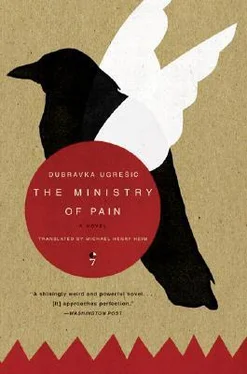
 . Major Veljko Vukašinovi
. Major Veljko Vukašinovi 
